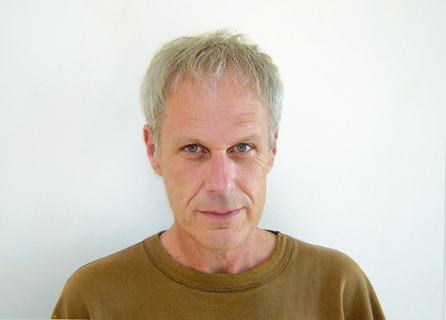
Dennis Cooper started publishing his poetry in the seventies in small presses. In the early eighties he wrote his first book of fiction, Safe, which was followed by a series of novels that earned him a respectable place in the underground literary scene. His subjects include pornography and sex. He has lived in Paris for the last several years and is the first American to win the Prix Sade. Of his writing, Kathy Acker wrote, “Cooper’s language is at first intense, nearly minimal, then suddenly, it ascends into vision." The Weaklings (XL), his first collection of poetry in nearly twenty years, is just out this fall. His website is dennis-cooper.net.
— Brandon Hobson and Nicolle Elizabeth
THE BELIEVER: When did you realize you were a writer?
DENNIS COOPER: I wrote terrible poems and stories kind of obsessively starting when I was a little kid. When I was fifteen, I guess I decided that meant something. I’d always been a kind of fucked up, strange boy with an adventurous imagination, and weird fears and fascinations, and very few friends. At fifteen, I discovered avant-garde literature and realized that writing could be as weirdly structured as my imagination. I also started to read writers like Sade and Genet and realized that my seemingly bizarre interests could be taken seriously if they were given the right form. Also, people at my high school started saying I was a good writer around then. That made a big difference.
BLVR: You work in many mediums aside from writing as well (though, to my mind, they’re all writing, in a way). How did you start to pursue the arts?
DC: Before I decided to concentrate on writing, I drew pictures and painted, and made Super 8 experimental movies. I was the singer in three rock bands, and I wrote and staged and acted in plays for kids in my neighborhood. So I was kind of all over the place in my interests and far-flung in terms of where my creativity wanted to end up. And, for whatever reason, most of my closest friends have always been visual artists and performers.
BLVR: Some people might consider you a person with good taste. Do you think trends in writing actually even matter?
DC: It depends. Trends in writing can be fun and indicative of something fresh and maybe even innovative. I guess I tend to think of the word trend as a reductive media and/or social networking label for what are usually literary groundswells or movements. So-called "Alt Lit," for example, is getting called a trend by wary outsiders, but I see it as this massive emergence of often very interesting, singular new writers and...
You have reached your article limit
Sign up for a digital subscription and continue reading all new issues, plus our entire archives, for just $1.50/month.
Already a subscriber? Sign in




